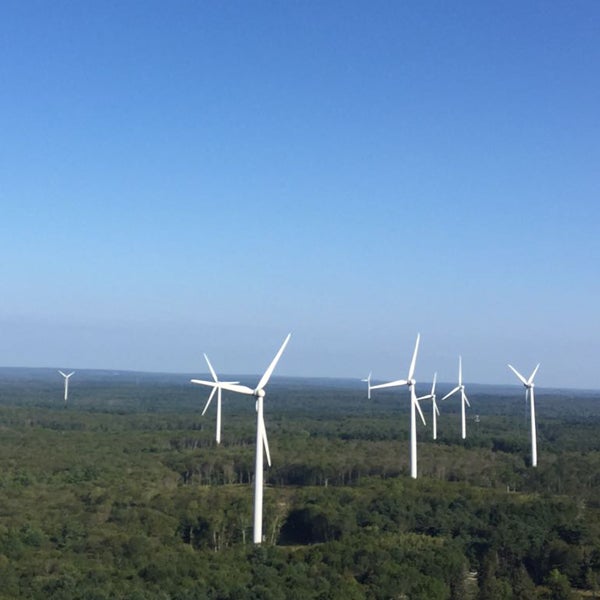Max Bliss ’19 worries that many developing nations have become so dependent on a small number of other countries for energy that they could be exploited or controlled. It’s an issue he wants to address when he graduates next year.
The first step toward his goal was becoming a URI Energy Fellow, which enabled him to spend a year working for Wind Energy Development, a local company that partners with private landowners to build wind turbines.
“It was a really good introduction to the wind industry,” said Max, a civil engineering and Spanish major. “I learned so much every day about the industry and how these systems work and how they can be better designed and better built. It confirmed for me that the energy industry is where I want to end up.”
Max was one of eight URI Energy Fellows in 2017 working at companies, government agencies, and other organizations on energy issues—from renewables and energy efficiency to green building design and energy education. Established a decade ago through URI Cooperative Extension, the program provides hands-on learning opportunities for students interested in addressing real-world energy issues from a sustainability or efficiency perspective.
The program provides hands-on learning opportunities for students interested in addressing real-world energy issues from a sustainability or efficiency perspective.
According to Kate Venturini, who administers the program, every Energy Fellow works closely with a mentor for a full year, and 70 percent of the 106 students who have completed the program have been offered a job in the energy industry.
“The program serves as a workforce development pipeline for mid-level professionals across the energy sector, which has seen significant growth in the past decade,” she said. Twelve students have been accepted as 2018 Energy Fellows.
Mabel Hodnett ’19 spent her Energy Fellowship at the Rhode Island Commerce Corporation’s Renewable Energy Fund, helping to manage the program that provides grants to residents and businesses to install renewable energy technologies.
“I loved being able to talk to all of the professionals in the field and hear about their experiences,” said Mabel, an environmental economics and business major. “I especially loved the New England Women in Energy event, because it was so inspiring to see so many women in the field.”
Hasan Simanto, a grad student studying systems engineering, spent most of his year as an Energy Fellow on campus, where he worked for the URI Office of Sustainability to analyze campus greenhouse gas emissions and electric vehicle charging station data. He also used his analytical skills to evaluate the University’s behavior change program that encourages students to consume less energy.
“This was a huge learning experience for me,” he said. “I learned that the energy field is not just a general engineering or science issue. Complex social and economic factors have a huge impact on energy and the energy market.”
Hasan said he wants to work toward a future where “energy and pollution are not considered synonyms. I want to build a career in sustainability, and the Energy Fellows Program was an excellent opportunity for me to gain invaluable experiences toward that goal.”

